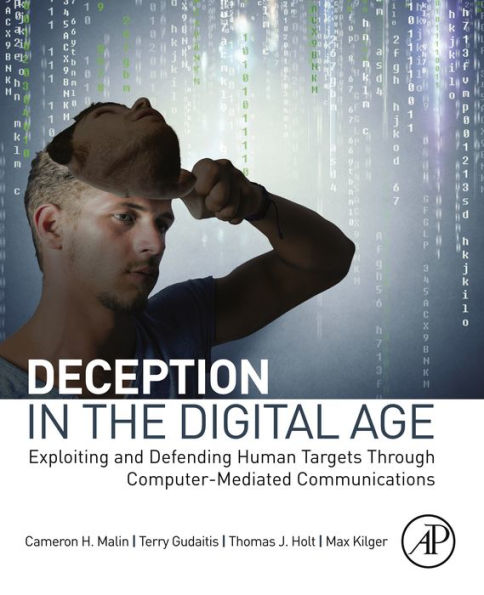Deception in the Digital Age: Exploiting and Defending Human Targets through Computer-Mediated Communications
Deception in the Digital Age: Exploiting and Defending Human Targets Through Computer-Mediated Communication guides readers through the fascinating history and principles of deception—and how these techniques and stratagems are now being effectively used by cyber attackers. Users will find an in-depth guide that provides valuable insights into the cognitive, sensory and narrative bases of misdirection, used to shape the targeted audience's perceptions and beliefs. The text provides a detailed analysis of the psychological, sensory, sociological, and technical precepts that reveal predictors of attacks—and conversely postmortem insight about attackers—presenting a unique resource that empowers readers to observe, understand and protect against cyber deception tactics. Written by information security experts with real-world investigative experience, the text is the most instructional book available on the subject, providing practical guidance to readers with rich literature references, diagrams and examples that enhance the learning process. - Deeply examines the psychology of deception through the lens of misdirection and other techniques used by master magicians - Explores cognitive vulnerabilities that cyber attackers use to exploit human targets - Dissects the underpinnings and elements of deception narratives - Examines group dynamics and deception factors in cyber attacker underground markets - Provides deep coverage on how cyber attackers leverage psychological influence techniques in the trajectory of deception strategies - Explores the deception strategies used in today's threat landscape—phishing, watering hole, scareware and ransomware attacks - Gives unprecedented insight into deceptive Internet video communications - Delves into the history and deception pathways of nation-state and cyber terrorism attackers - Provides unique insight into honeypot technologies and strategies - Explores the future of cyber deception
1133500436
Deception in the Digital Age: Exploiting and Defending Human Targets through Computer-Mediated Communications
Deception in the Digital Age: Exploiting and Defending Human Targets Through Computer-Mediated Communication guides readers through the fascinating history and principles of deception—and how these techniques and stratagems are now being effectively used by cyber attackers. Users will find an in-depth guide that provides valuable insights into the cognitive, sensory and narrative bases of misdirection, used to shape the targeted audience's perceptions and beliefs. The text provides a detailed analysis of the psychological, sensory, sociological, and technical precepts that reveal predictors of attacks—and conversely postmortem insight about attackers—presenting a unique resource that empowers readers to observe, understand and protect against cyber deception tactics. Written by information security experts with real-world investigative experience, the text is the most instructional book available on the subject, providing practical guidance to readers with rich literature references, diagrams and examples that enhance the learning process. - Deeply examines the psychology of deception through the lens of misdirection and other techniques used by master magicians - Explores cognitive vulnerabilities that cyber attackers use to exploit human targets - Dissects the underpinnings and elements of deception narratives - Examines group dynamics and deception factors in cyber attacker underground markets - Provides deep coverage on how cyber attackers leverage psychological influence techniques in the trajectory of deception strategies - Explores the deception strategies used in today's threat landscape—phishing, watering hole, scareware and ransomware attacks - Gives unprecedented insight into deceptive Internet video communications - Delves into the history and deception pathways of nation-state and cyber terrorism attackers - Provides unique insight into honeypot technologies and strategies - Explores the future of cyber deception
49.95
In Stock
5
1

Deception in the Digital Age: Exploiting and Defending Human Targets through Computer-Mediated Communications
284
Deception in the Digital Age: Exploiting and Defending Human Targets through Computer-Mediated Communications
284
49.95
In Stock

Product Details
| ISBN-13: | 9780124116399 |
|---|---|
| Publisher: | Elsevier Science & Technology Books |
| Publication date: | 06/30/2017 |
| Sold by: | Barnes & Noble |
| Format: | eBook |
| Pages: | 284 |
| File size: | 95 MB |
| Note: | This product may take a few minutes to download. |
About the Author
What People are Saying About This
From the B&N Reads Blog
